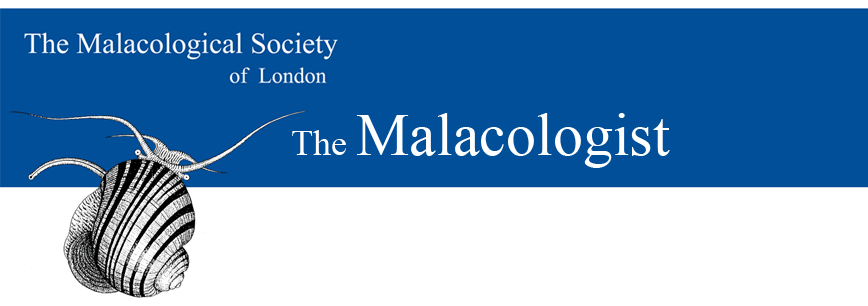

In praise of horrid creepy crawlies
First, I apologize to contributors to the last issue for placing the wrong issue number and date on each page.
In this issue, we remember three deceased malacologists. For biologists of their generation, biology emerged gradually from natural history as they progressed through primary and secondary education. For modern youngsters, that route may not exist, because natural history is no longer seen as relevant - who, for example, now needs to distinguish particular insects as gardeners' friends and enemies, when peas come in cans and apples in plastic blister packs? Indeed, with continuing urbanisation, knowledge of invertebrates is reduced to memories of stinging bees, shellfish poisoning and slug-holed vegetables. Any child showing natural interest is likely to learn an aversion from its parents - "Don't touch it!", "Don't eat it!" Reading material for young children has few stories featuring invertebrates (Charlotte's Web is one) compared to those which feature pets or monsters. It is therefore refreshing to see that The Society's Education Awards are starting to become noticed (see page 27). They encourage youngsters to develop their powers of observation and deductive reasoning by a scientific study based around molluscs, My own research started with sensory physiology (in lizards), so I was interested to see that the winning entries all centred around what it feels like to be another species. Indoor studies with snails and slugs have obvious advantages. There are many other fields of enquiry - what makes an effective barrier (look first at how they move), can they learn a simple maze - and what rewards will they work for? Maybe the Evolution Megalab (page 20) will stimulate further ideas.
Please send contributions (articles, brief reviews, and news items - including items from non-malacological journals) for the next issue (February 2009) to me at my home email below (my current academic email address may not extend beyond December). Please remember to keep articles and abstracts "as short as possible but as long as necessary" and avoid or explain specialist terms. Where appropriate, include a reference to a more detailed account, and an illustration!
Dr S E R ('Bill') Bailey
s.ba...@m336wy.freeserve.co.uk